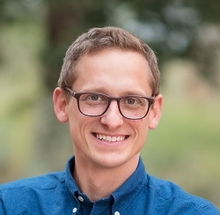QUANTITATIVE RESEARCH METHODS WORKSHOP - CANCELLED
Abstract: Analytics is now a widely adopted practice of analyzing data to understand and improve some process or outcome. The immense growth of analytics as a field has seemingly been in the breadth of applications, with more practitioners covering more varied domains, and using a variety of tools and techniques. In this talk, I draw on a decade of experience as an industry data practitioner to outline and structure the range of analytics tasks and their contributions.
Adopting a task-focused approach, I cluster activities based on the problems that need to be addressed and the methods that offer practical and effective solutions. I frame these tasks as causal-inference problems, where analysts work to generate decision-relevant knowledge about specific causal relationships. Analytics tasks tend to vary in the nature of the hypothesis space, the observability of the underlying process, its signal-to-noise ratio, and the ease of effective interventions.
Interestingly, some analytics tasks are well-served by widely used statistical methods, while others have less standardized practices and more ambiguity for practitioners. I conclude by focusing on the less developed space, offering ideas for improvements in these areas to better support analytics professionals.
Sean J. Taylor is co-founder and chief scientist at Motif Analytics. Previously he was a data scientist and head of Lyft’s Rideshare Labs and spent seven years as a research scientist on Facebook’s Core Data Science team. Sean’s work is at the intersection of experimentation and causal inference, with a focus on applied problems and generating business value using the latest methods. He earned his PhD in Information Systems from NYU’s Stern School of Business as well as a BS in Economics from Wharton School.
This workshop is open to the Yale community. To receive announcements and invitations to attend, please subscribe at https://csap.yale.edu/quantitative-research-methods-workshop.
The Quantitative Research Methods Workshop is sponsored by the ISPS Center for the Study of American Politics and The Whitney and Betty MacMillan Center for International and Area Studies at Yale with support from the Edward J. and Dorothy Clarke Kempf Fund.
